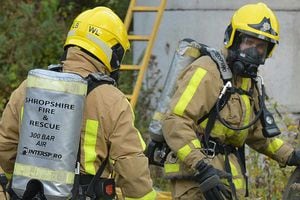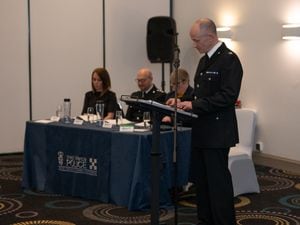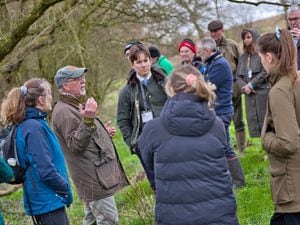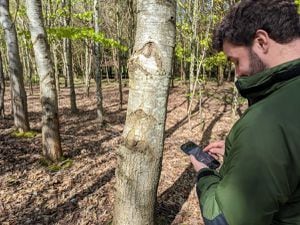Fire crews in Shropshire could respond to emergency ambulance calls in the future
Firefighters in Shropshire could soon respond to emergency ambulance calls if service bosses can agree how to manage the plan.

The move would either see firefighters take on the role of community first responders or become co-responders working alongside paramedics.
But West Midlands Ambulance Service and Shropshire Fire and Rescue Service cannot agree on how to move forward, stalling any potential joint venture.
Firefighters want to become co-responders – which could mean being paid by the NHS and registering with the Care Quality Commission.
It would mean if firefighters are closer to the victim they can attend cardiac and high priority emergencies and potentially provide life saving intervention.
Respond
But WMAS says they would still be able to respond to these calls as community first responders – something it says could be up and running in weeks, have little cost implication and would provide valuable assistance to the paramedics.
Murray McGregor, of WMAS, said: "We approached the fire service in August with a proposal for them to respond for us.
"It doesn't make sense for the fire service to have a bigger budget than the ambulance service and want to be paid again. We have been very clear with the fire service that we are happy for them to provide a service to us, but as they are a public service with a bigger budget than ours, we don't think it is reasonable for them to charge us."
He said that the main issue is ensuring that both services act under the same clinical governance – a framework through which NHS organisations are accountable.
Rod Hammerton, Shropshire's chief fire officer, said that he could not see a problem with joining the ambulance crews as co-responders, a system that works in other areas around the UK.
"There are 31 schemes already up and running around the country where fire services provide some element of support towards the ambulance," he said.
"Medical statistics show the quicker you get there, the best chance there is of survival," said Mr Hammerton.
However, Mr McGregor said it was not just a cost issue.
If the fire service decided to take on a role of co-responder, not expect to be paid, and register itself with the CQC, WMAS may still prefer them to be community first responders.
He said: "We would still have to make sure all the clinical governance arrangements work for us.
"We would have to go through all that process, and we would much rather spend our times saving people's lives."





